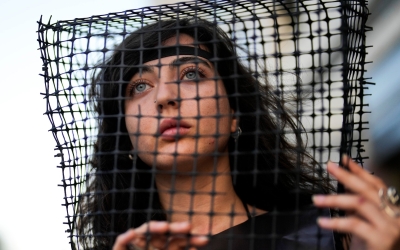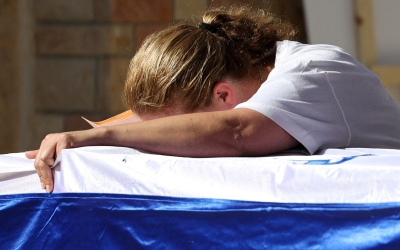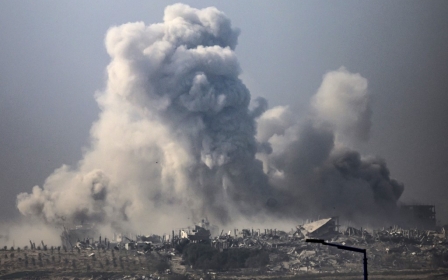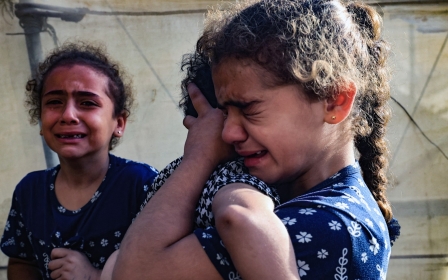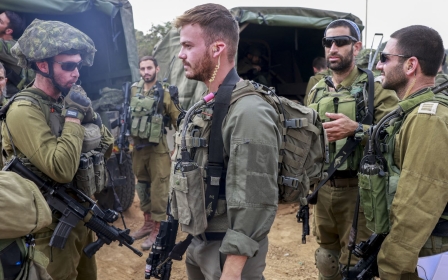Israel-Palestine war: Families of Israeli captives clash with Netanyahu during tense meeting
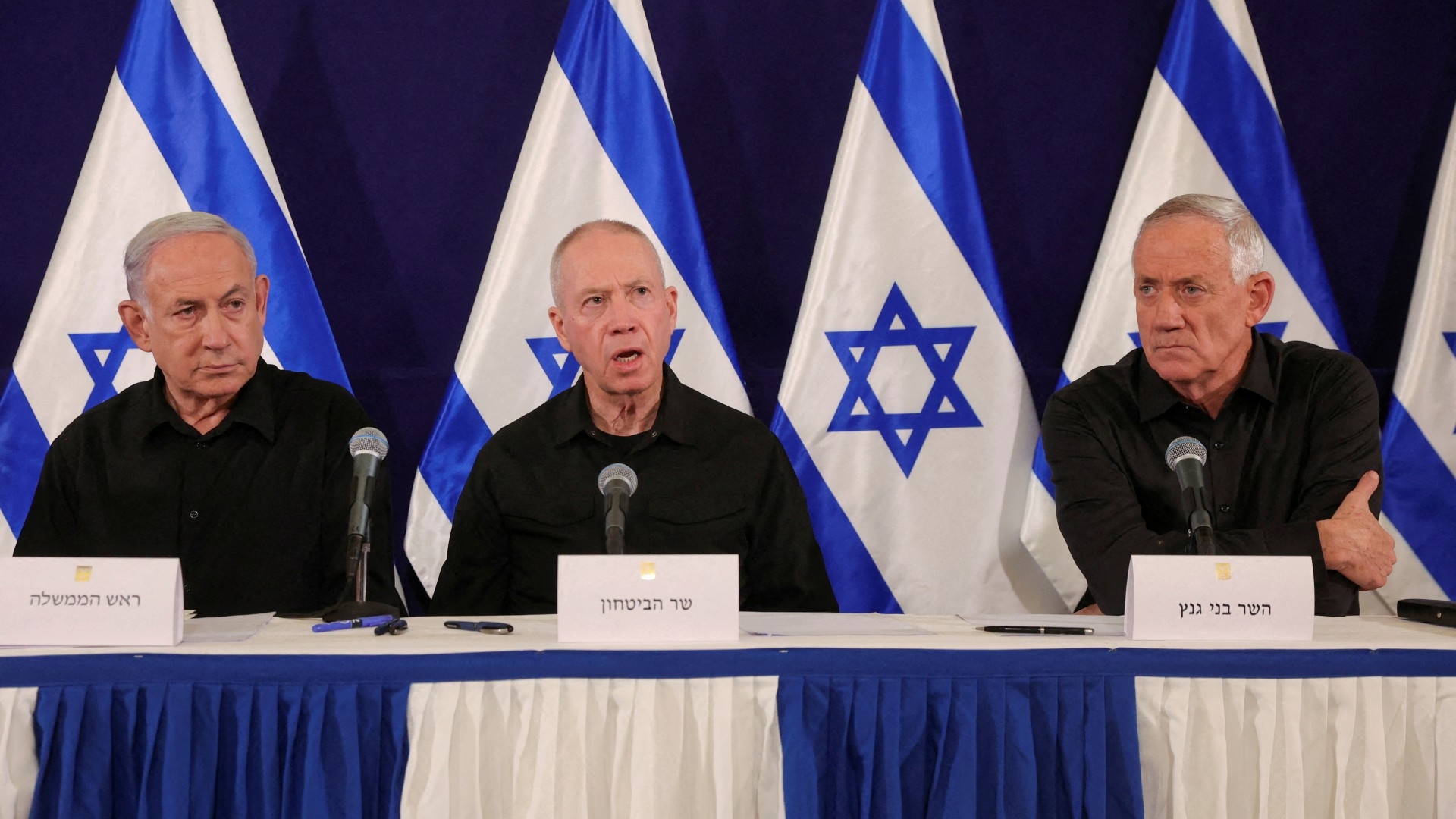
A cabinet meeting on 5 December between Israeli Prime Minister Benjamin Netanyahu, freed captives and the families of those still held in Gaza since 7 October ended in furore, according to reports in Israeli media.
Anger directed at Netanyahu could be heard in voice recordings from the meeting, with families accusing Israeli leaders of putting their political careers before the lives of the captives.
Some of those present at the meeting walked out in anger, while others described a tense atmosphere where voices were raised at Netanyahu.
The meeting had finally taken place at the request of the families of the captives, after being postponed three times. The families had demanded that the war cabinet also be present at the meeting with the prime minister.
Danny Miran, the father of captive Omri Miran, said that the meeting was “chaotic”.
New MEE newsletter: Jerusalem Dispatch
Sign up to get the latest insights and analysis on Israel-Palestine, alongside Turkey Unpacked and other MEE newsletters
“The meeting was a model of how the country is run. We were invited for 3 pm; they showed up only at 3:45 pm. They let us get mad and fight amongst ourselves - I left in the middle, it’s not acceptable,” he said.
Others who were present at the meeting, held in Herzliya, said that Netanyahu did not directly engage with any of their demands, and was reading mostly from a piece of paper. Recordings have meanwhile revealed that those present screamed at him in some instances.
In the recordings, Netanyahu told families that it was not presently a possibility to bring everyone home.
“Can anyone really imagine that if it was an option, anyone would refuse it?” he asked, angering those present, who included some of the captives released during a temporary truce last week.
“Hamas has demands that even you would not accept.”
'Air strikes don't bother them'
In an excerpt broadcast on Israeli Channel 12, the mother of a captive shouted at Defence Minister Yoav Gallant, demanding that he promise to bring back the captives alive.
“I’m not prepared to sacrifice my son for your career or for those of any of the notables here. Really not. My son did not volunteer to die for the homeland. He was a civilian abducted from his home and his bed,” she said.
The sentiment was shared by Simcha Goldin, the father of Hadar Goldin, an Israeli army soldier who was killed during the war on Gaza in 2014, and whose body has been held since.
“How many more Hadar Goldins and Ron Arads will there be?” he shouted at the ministers, in reference to his son and to another Israeli soldier who has been considered missing in Lebanon since 1986.
Meanwhile, others criticised the war cabinet for the way they have mishandled the hostage situation, and said that the sound of air strikes in Gaza was terrifying.
“Air strikes exploded above us and the Hamas operatives just kept sleeping. Your air strikes don’t bother them,” said Aviva Siegel, who was released from Gaza last week, and whose husband is still held in captivity.
According to the Israeli Ynet News, other released captives at the meeting included Raz Ben Ami, whose husband Ohad is still held captive; Sharon Cunio, whose husband David and other family members are also still in captivity; Yarden Roman-Gat, whose sister-in-law Carmel Gat is held captive; and Irena Tati and her daughter Yelena Trufanov, whose son Sasha is still in captivity.
The freed captives reiterated that they were held in locations close to where Israeli air strikes were being targeted.
In quotes provided by Channel 12, Cunio is reported to have told ministers she felt that they had "no idea what’s even going on there at all. You claim that you have intelligence but the fact is we were bombed. My husband was separated from me three days before I was freed.”
She added that “you are putting politics above returning the hostages,” and she had watched captives die next to her.
Middle East Eye delivers independent and unrivalled coverage and analysis of the Middle East, North Africa and beyond. To learn more about republishing this content and the associated fees, please fill out this form. More about MEE can be found here.


